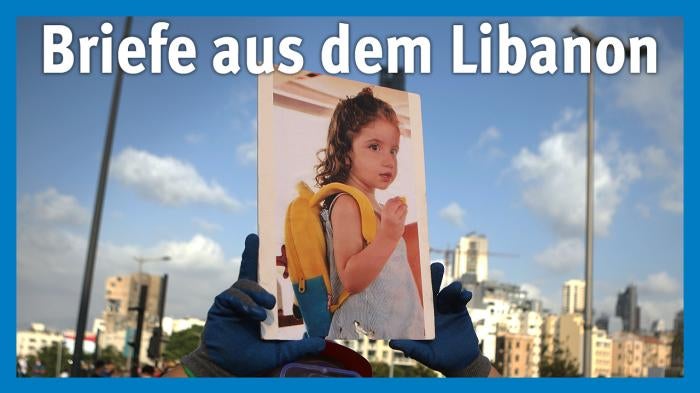Briefe aus dem Libanon
Read a text description of this video
Cherbel called right at 6pm. He spoke to our daughter She was sitting in her high chair He said, “Look at Daddy, I’m in the fire truck. We’re going to put out a fire.”
I felt this intense heat across my face.
I was scared. They looked like they were sleeping. Or were they dead?
My daughter is only three now. If she asks me, “Who killed him?” What will I tell her Should I tell her I don’t know? That I don’t know who killed him? That we in Lebanon couldn’t find out [the truth]? No.
Dear Human Rights Council, We’re counting on you, since we can’t count on our own government.
Dear Human Rights Council, The country can’t go on without the truth.
Lebanon is waiting.
In die Explosion vom 4. August 2020 in Beirut, bei der 218 Menschen ums Leben kamen, sind nachweislich hochrangige libanesische Offizielle verwickelt, die sich aufgrund systemischer Probleme im Politik- und Rechtssystem des Libanons jedoch bisher der Rechenschaftspflicht entziehen konnten, so Human Rights Watch in einem heute veröffentlichten Bericht. Der UN-Menschenrechtsrat sollte eine Untersuchung anordnen, und Länder, die über ein globales Sanktionsregime im Sinne des Global Magnitsky Act oder ähnliche Menschenrechts- und Korruptionssanktionssysteme verfügen, sollten Sanktionen gegen die Verantwortlichen für die fortlaufenden schweren Menschenrechtsverletzungen im Zusammenhang mit der Explosion vom 4. August verhängen und diejenigen, die die Rechenschaftspflicht unterminieren.
Ähnliche Inhalte

